#Deadhouse Gates
Text
“The lesson of history is that no one learns.”
Steven Erikson, Deadhouse Gates
#books#booklr#bookaddict#quote#reading#booknerd#booklover#bookworm#book quotes#book#steven erikson#deadhouse gates#malazan book of the fallen#fantasy books#high fantasy
348 notes
·
View notes
Text
"Children are dying."
Lull nodded. "That's a succinct summary of humankind, I'd say. Who needs tomes and volumes of history? Children are dying. The injustices of the world hide in those three words[…]”
-Steven Erickson, Deadhouse Gates
#malazan#malazan book of the fallen#deadhouse gates#fantasy#this quote has been in my head a lot given what’s happening in Israel/Palestine#I’m not advocating to ignore history#but there’s so much noise around the issue#who’s to blame#who is at fault#children are dying#if you aren’t trying to stop that#what are you doing?#Israel#Palestine#politics
68 notes
·
View notes
Text
Rereading Malazan Book of the Fallen for probably the fifth time...
"This city was dead long before the sea dried up," Fiddler said, resuming his climb.
Crokus called up after him, "How do you know?"
"Because everything's water-worn, lad. Waves crumbled this sea wall. Century after century of waves. I grew up in a port city, remember. I've seen what water can do. The Emperor had Malaz Bay dredged before the Imperial piers were built-revealed old sea walls and the like." Reaching the top, he paused to catch his breath. "Showed everyone that Malaz City's older than anybody'd realized."
"And that the sea levels have risen since," Mappo observed.
Fascinating to see how a major plot-point of Witness (the new series) was being casually built up as early as book 2 of MBotF - the melting of the Jaghut ice. And perfect of course, that it is Mappo who brings it up: of the group, he's the only one who would have been in a position to know this.
One thing I truly love about this series is the extent to which the world feels lived in. People have lived in the lands for hundreds of thousands of years, and not as static occupiers, but have endured climate change, environmental collapse, invasions, migrations, cultural movements, and political upheavals. Nobody does longue durée quite like Steven Erickson.
He's also an author who cares about subsistence strategies and the way geography shapes human patterns. The major cities emerge in places where water transport and farmland intersect. Plains nomads have pastoral animals apart from horses, plus working dogs, women play key roles in subsistence, and they have distinct material culture in dress and decoration. (As opposed to certain other authors, cf. Bret Devereaux's Dothraki write up). Environmental changes and human movement force new strategies; pretty much every group in the Malazan world is in some kind of flux or process of change outside of the actual plot, and have diverse responses to these pressures in terms of culture and values.
For all that these books can be very dense, I also appreciate Erikson's loving indulgence toward the reader. Yes, it would be funny if a small spoilt lapdog joined a pack of war dogs: so we will have a series of vignettes describing this in the background of real events. Yes, it is very funny to picture a bunch of capering monkeys mocking the High Priest of Shadow and his broom nonsense, so we will get a series of slapstick set pieces again in the background. Characters like Kruppe and Iskaral Pust get to chew the scenery, etc.
115 notes
·
View notes
Text
Watching Steven Erikson murder my favourite characters two books in a row
Guess that's why it's called Book of the Fallen

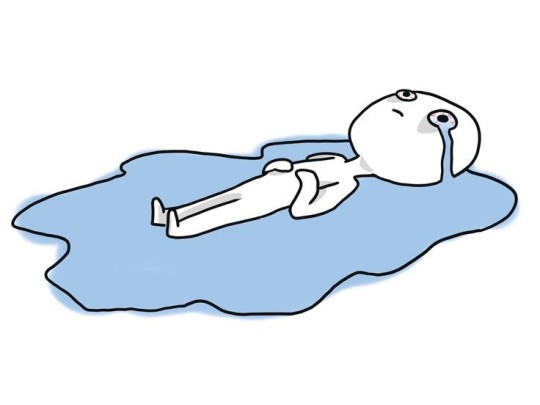
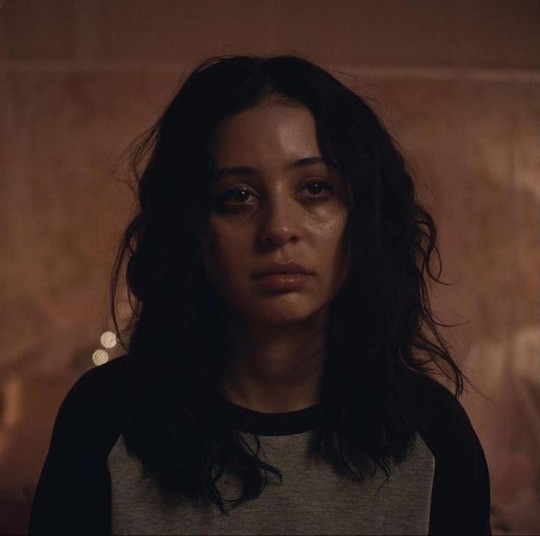
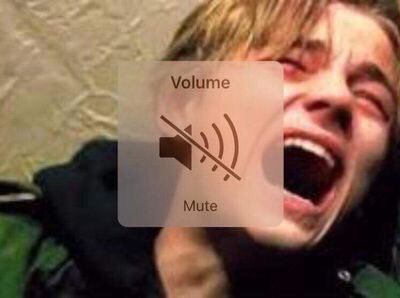
77 notes
·
View notes
Text
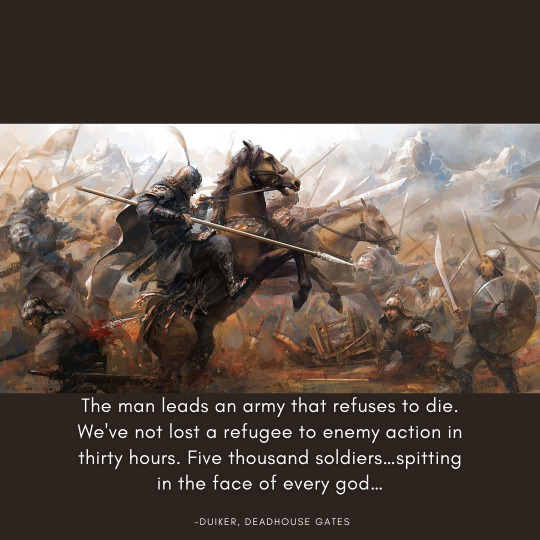
#Malazan#deadhouse gates#duiker#coltaine#chain of dogs#Malazan 2#steven erikson#wickan#Bult#Aren#seven cities#Genabackis#Korbolo Dom#felisin paran#Felisin#Heboric#Raraku
53 notes
·
View notes
Quote
"Children are dying." Lull nodded. "That's a succinct summary of humankind, I'd say. Who needs tomes and volumes of history? Children are dying. The injustices of the world hide in those three words."
Steven Erikson, Deadhouse Gates, book 2 of the Malazan Book of the Fallen
#quotes#malazan#malazan book of the fallen#deadhouse gates#injustice#injustices#humankind#humanity#history
79 notes
·
View notes
Text
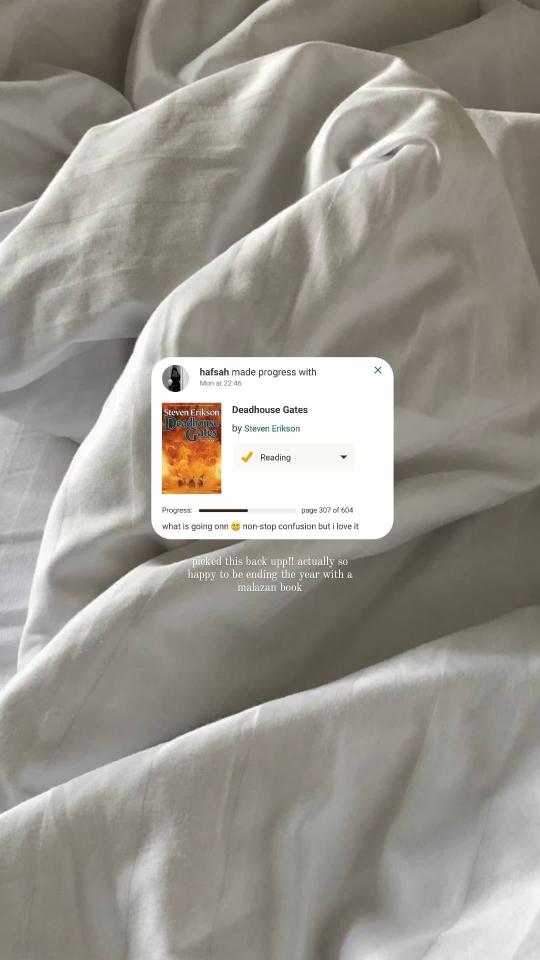
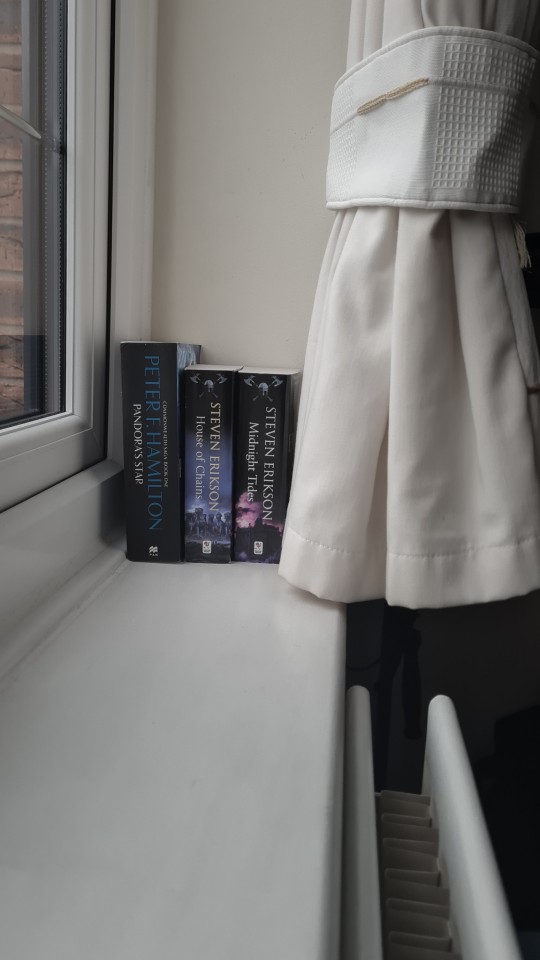
[ reading update + book haul ]
#malazan#malazan book of the fallen#steven erikson#book haul#haul#deadhouse gates#house of chains#midnight tides#literature aesthetics#books#book#bookish#bookblr#bookworm#bookstagram#dark academia#booklover#pandoras star#peter f hamilton#scifi#sff#fantasy#epic fantasy#studyblr#beige#beige tones#beige blog#minimalism#malazan empire
45 notes
·
View notes
Text
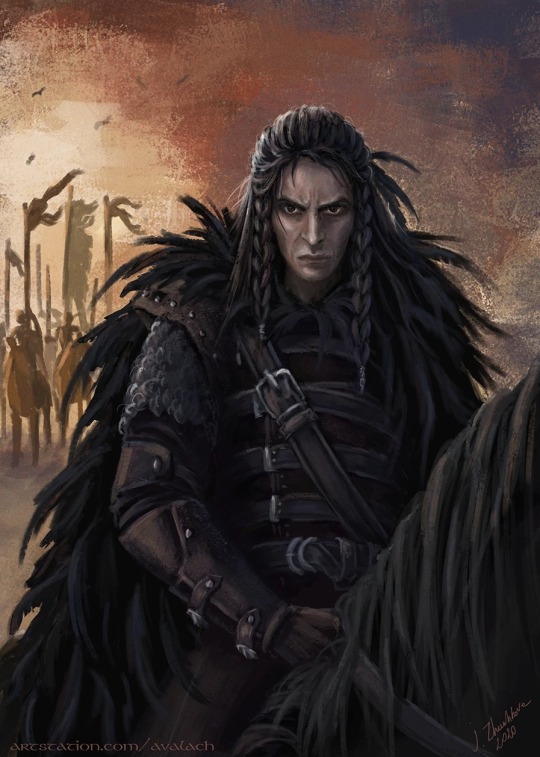
Thinking about him again
#malazan#malazan book of the fallen#coltaine#Coltaine my beloved war criminal 🥰#THE COLTAINE RUNS ON WHOLE GRAIN BABY#no spoilers for anything after Deadhouse Gates please#deadhouse gates#spoiler free#art#fantasy#avalach
41 notes
·
View notes
Text
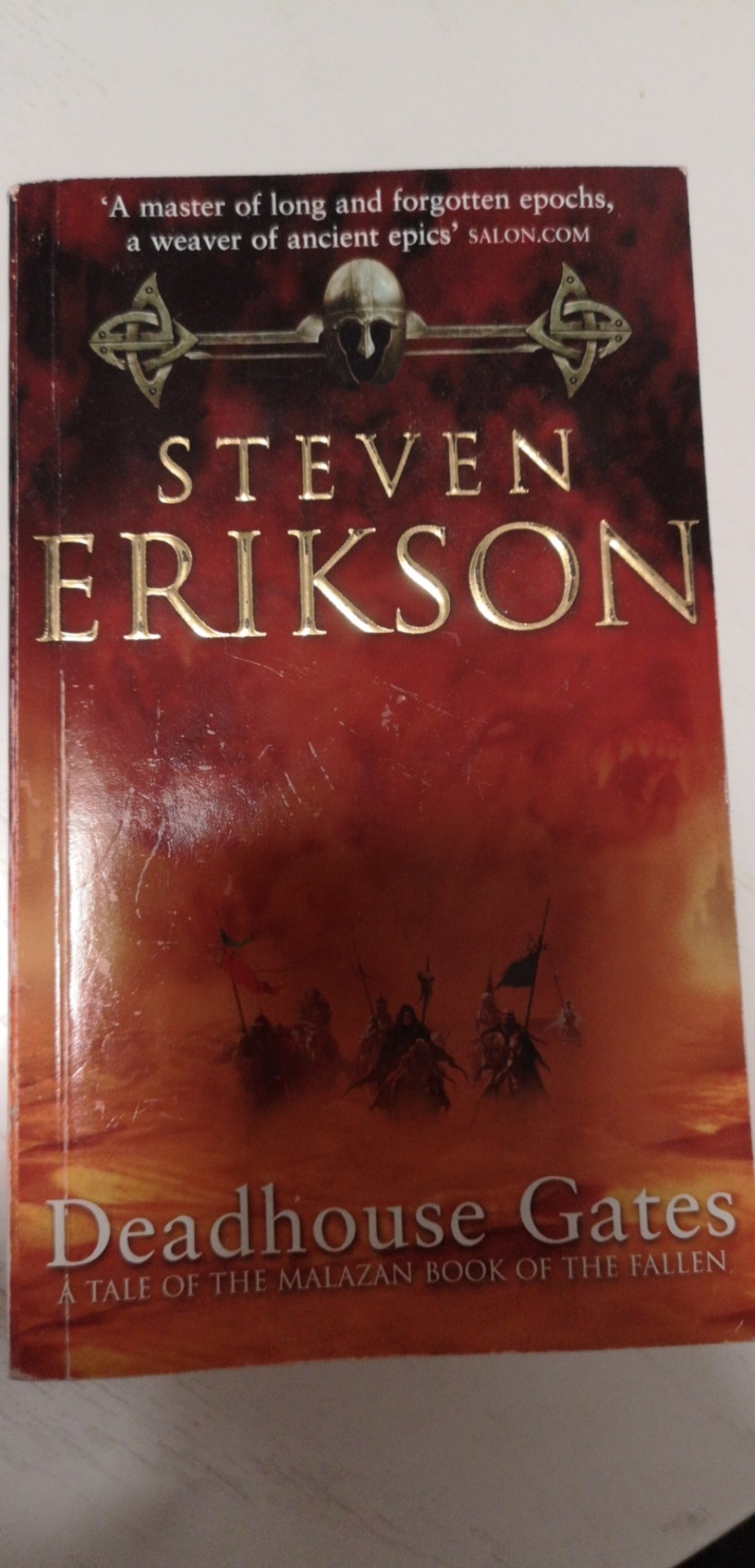
Deadhouse Gates - Steven Erikson
Malazan Book of the Fallen Book 2
Read: Aug 2023
So this book was much more...accessible? I think it was just that, having read the first book, I was more used to a) the world of Malazan; and b) Erikson's writing. I also spent a lot of time on wikis looking things up when I read the first one so I came with more knowledge. In any case having more context(?) going in, I enjoyed this book considerably more than I did the first one. I guess it could also be that Erikson had gotten better at writing book to book. I'm sure Erikson did improve actually (I really can't see how you could not writing this much), but how much is hard to judge for me. All this is beside the point I will say. I enjoyed it a lot. And it really made me interested in reading more, so in that aspect it was a grand success.
There are a lot of moving parts in this book and they don't all come together at the end like one would expect. So that might be hard for some people. Personally my least favourite thing in this book is one of the characters. She is, quite frankly, despicable. She's had a very rough go of it, so you can understand why, but truly I couldn't stand it any time she was on the page. For the most part however there are lots of cool and interesting things that happen in here so I had fun reading it.
Info: Bantam Books; 2000
4 notes
·
View notes
Text
Reading deadhouse gates and I feel like Felisin is kinda getting the short end of the stick here. She's a teenage noble girl, who's sister betrayed her, and she trauma bonds with a handled ex-priest and a thug. She pretty much has like a day of being chained up during a plague holiday, then through a riot with blood and gore and violence abounding. Then they are on a ship and the only way to not get tied up in the bowels where you rot or drown is for her to trade herself and she does so because teen girl trying to survive and the two dudes she trauma bonded with. Get to the mines and she gets picked quickly by a slave who is over the other slaves and she once again uses her body to get safetly and aid for herself and her companions (it's all she has) cue said companions treating her like shit and looking down on her for doing so. Also being with guy hurts like hell, and starts trading her to friends and her life is shit but she still thinks she's accomplishing something...then guy gets her hooked on a drug and tries to dump her once she's inevitably hooked. Her companions even think to potentially abandon her because she "seems to have made herself a paradise" like she had any choice? She was trying to have some control but she was a damn kid with no real support from either of you. Then she gets told by them later that "oh your efforts were pointless we got stuff for ourselves, just fel to bad to tell you you were suffering for nothing". Like no wonder this poor girl becomes so acidic and hate filled.
6 notes
·
View notes
Text
“My evening star. If the sun burned out tomorrow, your flame would light the world.”
Steven Erikson, Deadhouse Gates
#book quotes#bookworm#booklr#booknerd#quote#book#reading#bookaddict#books#booklover#steven erikson#deadhouse gates#malazan book of the fallen
8 notes
·
View notes
Text
I think a lesson can be learned with chapter XXI of Deadhouse Gates. The build-up is what matters. The real event, the final, can be a mere 4-5 pages. But if the build-up was well crafted, it will suffice.
And rarely any build-up has been more masterfully crafted than the Chain of Dogs. Coltaine...
33 notes
·
View notes
Text
Attempting to sum up my feelings and thoughts on Deadhouse Gates
4.5/5
Non-Spoilers.
What a sequel. I thought Gardens of the Moon was probably the best thing I'd ever read but somehow Deadhouse Gates was better?? Like objectively speaking the writing leveled up but also the feel of the novel was more cohesive too.
I never quite understood what people meant when they said "the setting was its own character" but from Hissar to Raraku, Seven Cities feels so real and is ever relevant to the story. It colours the pages and actions and plot in its own hue. And Erikson's layers of history and culture add a visceral and powerful weight that deepens the stories set there.
I honestly don't think I can say I read this book. I experienced it, and what an experience it was. As the fans say, I have walked the Chain of Dogs.
Once again, there is no shortage of wonder (from a ghost ship operated by the dead to a city of people turned to stone) the fantasy is as high as ever - but Erikson forced me, again and again, down to earth with the best parts of this story being the study of humanity.
Any book this grim and especially in the current political climate could come off as unpleasant or flimsy if not downright distasteful, but Erikson has left me in awe, heartbroken and shaking my head at futility but somehow never feeling hopeless. He is not trying to be dark for the sake of being dark. He is showing you humanity in all its shades.
It is not lightly that I say this book shows the actual nuance of conflict, the only way it can be: through the individual human lens. It confronts these characters with their own bias, with hypocrisy, with betrayal, with being wrong and with the humanity of their enemies and the futility of their actions.
And the characters?? Good lord, I don't understand how Erikson can have such huge but distinct characters. Even the animals have personality! Moby, Apt, the Ghral horse and of course the Wickan dogs! Felisin, Coltaine and Icarium were the standouts for me though it would be unfair not to give Erikson props for the insanity that is Iskaral Pust.
Once again, my biggest gripe boil to Erikson not being good at developing romance.
All in all, Deadhouse Gates - from it's insane prologue to the very end is a once in a lifetime experience and even if I never picked up another Malazan book (literally reading MoI rn) I would still be happy I got this far. If GoTM were not needed for context and a general understanding of Erikson's style, I would recommend Deadhouse Gates even to those who have no interest in Malazan.
Spoilers
Coltaine, Kulp and Lorn. Erikson has me 3 for 3 on killing my favourite characters. At least my Coastal Marines seem to be fine.
How so many can read this book and hate Felisin has me disappointed but not surprised. Not only was she completely valid in her feelings, but she was also hilarious in her jabs. It's so sad that one of the first memories transmitted to Felisin from Sha'ik is the implied sexual assualt at the hands of the man who raised her. And there's something so bittersweet about Sha'ik Reborn giving the name Felisin to her daughter in hopes that the girl she was and the girl she has will fair better than Felisin Paran did.
The Chain of Dogs will stay with me always. As a person who lives in the Global South/Third World and was born only 3 years into my country's independence, fear of civil unrest, war and general collapse of law and order have been very real fears in my life. I tend to stray away from documentaries and movies centered around these topics because of the anxiety it creates in me.
But Erikson never took things too far, he was blunt and honest in his portrayals - though I will say I wish we had seen more of Seven Cities natives who objected to violence and sexual assault especially as tools of war. I know that these things often happen but the same is true of objection, of restraint, of a want to see justice play out in a more lawful way.
Again, I am saying this as someone who was born into a newly independent country, so much of the immediate aftermath was trials in which families got lawful justice and acknowledgement of the wrong done to them and their loved ones under the former regime.
I am glad we got the nuance of Duiker and Kalam being natives who align more with the Empire - their reasoning is well done, nuanced and even more amazing when, in Kalam's case, he must face the possibility of viewing the Empire in a gold haze or rose-tinted glasses.
On the topic of Kalam, I will be honest and say my like of Kalam and Ben as a duo might have skewed my initial reading of Kalam and Minala's interactions, but I have never and will never be the type of person who villainizes or dislikes a female character for "coming in between" the relationship of two male characters.
I want to make it clear that I don't dislike Minala at all. However, Erikson has failed, once again, to make me believe in this romance. I don't buy Minala leaving her sister in the middle of life-changing rebellion to follow a man she barely communicated and connected with. Especially so soon after escaping her abusive husband's grasp which she only endured because it benefitted her sister.
Pearl had better chemistry with Lostara, hell, he had better chemistry with Kalam as Salk Elan than Kalam and Minala had. It would have been more believable to have Kalam stay and raise Shadowthrone's child army as a sort of repayment to Apt and Panek.
Speaking of, I always knew Kellanved/Shadowthrone was a bit...off...just from the stories he's heard but it's another thing entire to see Cotillion have doubts. VERY INTERESTING.
The Wickans piqued my interest from the moment they stopped the Red Blades at the docks but Coltaine and Bult speaking up in favour of Laseen had me instantly on their side as I never appreciated the nostalgic, boys club view that so many of our veterans had of the Laseen v Kellanved story. I always believed she would at least be fleshed out. And when Erikson had Chalice dash Crokus' idealised dreams and Murillio see the hollowness in his victory and the humanity in Simtal at the end of GotM, I knew he wasn't going to be the type of author to give us hollow, one note female characters.
Fid, Crokus and Apsalar - my darling family, also verrrry interesting that Fiddler returned to Seven Cities instead of Genabackis
Seeing as the title of the next book is Memories of Ice, I was immediately entrigued by the glimpses of Jaghut and Imass history we got. I LOVED Lorn and Tool in GotM so getting more on the T'lan Imass but especially on otataral was such a treat.
I was, in some ways, mentally prepared for Coltaine to die as part of him being this larger-than-life figure and inevitable tragic hero BUT I will never forgive Erikson for Kulp WHYYY
I cried through Mappo's confession to Icarium but I was already bawling at Duiker leaving the remains of the 7th behind to see the refugees to Aren. I took a ten minute break from reading after the gates closed, thinking that was the end of it. But Erikson had more in store for me and I was almost as wrecked by grief as Nil and Nether at end of chapter 21 and I set the book down for a day and half, once again foolishly thinking that was the end.
Malazan fans say "you walked the Chain of Dogs" but, tbh, it dog-walked me, I was wrecked.
PS
I love how everyone in the book and even me in this rambling review, completely brush past Heboric pulling Fener onto the mortal plain. I found otataral interesting just from Lorn's sword but this has brought me a million questions
38 notes
·
View notes
Text
Hardan başlayım, necə ifadə edim bilmirəm. Güldürən, heyrətləndirən, dəhşətə gətirən, ağladan bir kitab oldu. On kitablıq seriyanın ikinci kitabının bu qədər kədər, iztirab yüklü olmasına hazır deyildim. Bir neçə dəfə gözlərimi yaşartmışdı. Nə biləydim ağladacaq hadisələr sonda yaşanacaq...

#ölühane kapıları#malazan 2#malazan#steven erikson#malazan book of the fallen#duiker#coltaine#fiddler#kemancı#mappo#wickan#köpekler zinciri#chain of dogs#deadhouse gates#ithaki#yayınları#cihan karamancı#eminjbrylv
20 notes
·
View notes
Text
Chapter 22 is as bitter as chapter 21 is tragic. I expected Duiker to be safe in Aren after Coltaine's demise. Well, I was wrong. Really, fuck Mallick Rel and Pormqual, even more than Korbolo Dom. This chapter is a punch in the gut.
#deadhouse gates#malazan#steven erikson#malazan book of the fallen#the malazan book of the fallen#chain of dogs#duiker#coltaine#mallick rel#high fist pormqual#fantasy#fantasy books#books#fantasy literature#dark fantasy#dark fantasy books#epic fantasy#high fantasy#books and reading#reading experience#malazan spoilers#book spoilers
4 notes
·
View notes
Text
the chain of dogs, huh.
#malazan book of the fallen#deadhouse gates#malazan#I am Not Well#*immediately moves on to the next book regardless bc pain is illusion*
18 notes
·
View notes